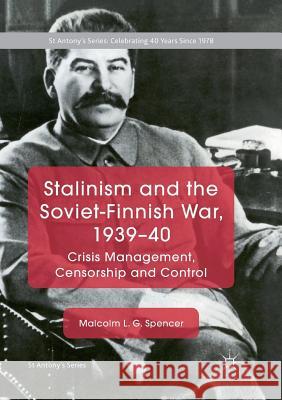Stalinism and the Soviet-Finnish War, 1939-40: Crisis Management, Censorship and Control » książka
topmenu
Stalinism and the Soviet-Finnish War, 1939-40: Crisis Management, Censorship and Control
ISBN-13: 9783030068899 / Angielski / Miękka / 2018 / 229 str.
Stalinism and the Soviet-Finnish War, 1939-40: Crisis Management, Censorship and Control
ISBN-13: 9783030068899 / Angielski / Miękka / 2018 / 229 str.
cena 229,96
(netto: 219,01 VAT: 5%)
Najniższa cena z 30 dni: 219,73
(netto: 219,01 VAT: 5%)
Najniższa cena z 30 dni: 219,73
Termin realizacji zamówienia:
ok. 22 dni roboczych
Bez gwarancji dostawy przed świętami
ok. 22 dni roboczych
Bez gwarancji dostawy przed świętami
Darmowa dostawa!
Kategorie BISAC:
Wydawca:
Palgrave MacMillan
Seria wydawnicza:
Język:
Angielski
ISBN-13:
9783030068899
Rok wydania:
2018
Wydanie:
Softcover Repri
Numer serii:
000319737
Ilość stron:
229
Waga:
0.29 kg
Wymiary:
21.01 x 14.81 x 1.3
Oprawa:
Miękka
Wolumenów:
01
Dodatkowe informacje:
Wydanie ilustrowane











